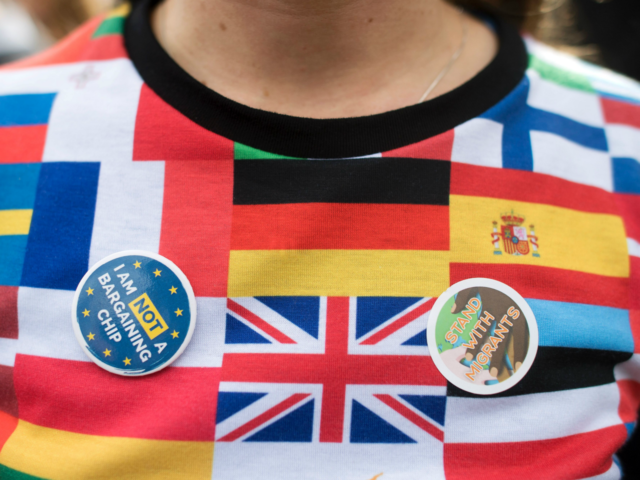“Better off in.”
This was the slogan of the Remain campaign during Britain’s EU referendum. It didn’t persuade the 17.4 million people who voted Brexit, most of whom see the EU for what it really is: a corrupt, sclerotic, socialistic, anti-democratic, anti-capitalist, authoritarian superstate run primarily in the interests of the country that lost the war but won the peace, Germany.
Ever since, bitter Remoaners have been lining up on the BBC to explain how this was a huge mistake and how we should all vote again to get the correct result this time.
But what if new evidence emerged to prove that those untutored, ill-educated, knuckle-dragging peasants who were stupid enough to vote for Brexit were right all along?
What if that slogan “Better off in” turned out to have all the credibility of “Healthier with Ebola”, “Faster with both your legs chopped off”, “Comfier in a giant bath of deadly scorpions”?
Well guess what? We now do have that proof.
It shows that
a) Germany really is running the EU in its own interests
b) the EU doesn’t give a damn about its junior member states, especially those pesky Eastern Europeans with their unhelpful belief in democracy and not being overrun by Muslim immigrants
and c) all those immutable and adamantine regulations which the EU claims it is impossible to relax with regards to Britain’s imminent departure can be shifted at the drop of a hat so long as you know the right people.
The evidence – and it’s quite a scoop – has been unearthed by Ambrose Evans-Pritchard in the Telegraph (££)
Here is the nub of the story:
The longest investigation in EU history found that the Kremlin-controlled energy giant Gazprom has used its enormous power to pressure vulnerable states in Eastern Europe, and to fragment the EU’s unified energy market with coercive pricing policies.
The report suggests that Germany has been enjoying a sweetheart deal with Gazprom, gaining a competitive advantage in gas costs at the expense of fellow EU economies and leaving front line states at the mercy of Moscow’s strong-arm tactics.
Hundreds of pages leaked from the European Commission paint an extraordinary picture of predatory behaviour, with Gazprom acting as an enforcement arm of Russian foreign policy. Bulgaria was treated almost like a colony, while Poland was forced to pay exorbitant prices for imported flows of pipeline gas from Siberia.
and
Investigators found that Gazprom was charging Poland $350 per 1000 cubic meters of gas, compared with $200 further down the Yamal pipeline in Germany, where the cost should logically have been higher. The apparent reason was to punish Poland for refusing to cede control over that section of the infrastructure to the Russians. Germany’s privileged pricing may help explain why it has been the chief champion of Gazprom’s interests in Brussels despite the Kremlin’s assault on Western democracies.
Similar punitive costs were imposed by Gazprom on Bulgaria and also on the Baltic States, with the prices rising or falling according to concessions individual states were prepared to make to Russian influence.
As Evans-Pritchard notes, what matters most about this story is what it says about the “emptiness of the EU’s rhetoric and moral posturing.”
The entire EU project is, in essence, an exercise in virtue-signalling. “Yes you may end up sacrificing one or two trivial freedoms in the name of the greater cause,” its writ runs, “But in doing so you will become part of a polity which embraces equality, diversity, human rights, social justice and sustainability.”
Now we know that, as in all the best totalitarian states, some animals are more equal than others.
As Evans-Pritchard says:
The scandal is in one sense the political equivalent to the diesel affair in the car industry, and raises awkward questions about the integrity of the German political system. The saga has infuriated the Polish government, which is currently facing EU action over its court policy and accuses Berlin and Brussels of cherry-picking moral issues.
Better off in?
Yeah, right.

COMMENTS
Please let us know if you're having issues with commenting.